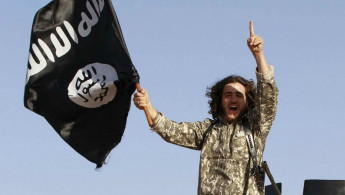Hitting IS where it hurts - in the pocket
The Islamic State group faces attacks on its funding as well as its territory, as the international community attempts to starve the group of money to bring it to its knees.
A UN resolution, passed on February 12, targets the group's funding streams - including ransoms, oil sales and even the sale of historical artifacts - and authorises the use of force against any group or state in violation.
But the resolution is entirely international in outlook, and does not tackle internal revenue streams that bring in millions of dollars to the IS group.
The IS group controls or has influence in approximately 48 percent of the area of Iraq, and 35 percent of the area of Syria - an area which is three times the size of Jordan.
Black gold and donations
The group reportedly makes tens of millions of dollars a month through selling stolen oil, and to a lesser extent the funds it receives from supporters outside Iraq and Syria.
Indeed, the IS group is believed to sell oil to the Syrian regime and has set up agreements with Damascus to keep power stations running for the benefit of both sides.
Sources said that the regime buys tens of thousands of dollars of oil and gas from the IS every day to fuel its power stations.
Damascus often sends technical crews into IS territory to maintain key projects, such as the Euphrates Dam hydro-electric power station.
Ahmed Obaid, a member of the Iraqi parliament, said that the UN resolution was ineffective as it focused only on the IS group's transactions outside Iraq and Syria, and ignores the group's internal resources.
Obaid told al-Araby al-Jadeed: "The issue needs far more than sanctions as the IS group has reached the stage of self-sufficiency and it has been expecting sanctions for months."
Obaid suggested that the US-led alliance against the group should focus its attacks on its economic activities, a suggestion criticised by the Iraqi Commission for Human Rights as a "scorched earth" policy that would endanger the lives of millions of civilians.
|
|
UN takes action |
|
|
|
The UN resolution was passed on 12 February. |
Three steps to victory
US officials have stated that three things must happen to weaken the finances of the IS group - cutting revenue streams, limiting its ability internationally to use the money it has, and imposing sanctions on those who do business with the group.
The US and European nations have also successfully pressed Gulf Arab countries to stop the flow of donations to the group, a common practice before the its whirlwind expansion last year when it was being supported in Syria.
Tackling international donations and business will only go so far, however. Western observers believe that the IS group's control of major Iraqi cities has allowed it to amass huge sums of money. Many reports stated the group seized approximately $400m from banks during last year's capture of Mosul, although this has never been confirmed.
Indeed, Mosul is believed to be one of the largest sources of income for the group, through taxation and the area's industry and agriculture.
Therefore, the IS group would still need to be forced out of the areas it controls even if its international dealings were stymied.
This is an edited translation of two Arabic stories, 1 and 2.



